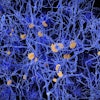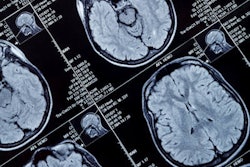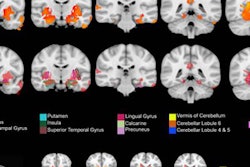Functional MR images have revealed how different ingredients in marijuana appear to affect regions of the brain as it processes functions and responses to certain visual stimuli and tasks, according to a study in the January issue of Archives of General Psychiatry.
The study, led by Dr. Sagnik Bhattacharyya at the Institute of Psychiatry of King's College London, enrolled 15 healthy men (mean age, 26.7 years) who were occasional marijuana users to examine the effects of Δ9-tetrahydrocannabinol (Δ9-THC) and cannabidiol (CBD) on regional brain function (Arch of Gen Psychiatry, January 2012, Vol. 69:1, pp. 27-36.)
Δ9-THC is the main psychoactive ingredient in marijuana and has been shown to induce acute psychotic symptoms in healthy individuals. CBD is also found in marijuana and can trigger heightened attention.
Using 1.5-tesla functional MRI, each subject was scanned on three occasions after receiving Δ9-THC, CBD, or placebo. The subjects were asked to perform a visual "oddball" task of pressing buttons according to the direction of arrows on a screen to measure their response.
Bhattacharyya and colleagues found that Δ9-THC significantly increased the severity of psychotic symptoms compared to placebo and CBD; there was no significant difference between the CBD and placebo reactions.
Δ9-THC also had a greater effect than placebo on reaction time, as shown by the MR images of both prefrontal and striatal function in the brain. Δ9-THC was found to increase activation in the prefrontal region and weaken activation in the striatal region.
In addition, the magnitude of Δ9-THC's effect on response times was correlated with its effect on activation in the right caudate, the region where the physiological effect of Δ9-THC was linked to its induction of psychotic symptoms, the authors noted.
When the effects of CBD were compared with Δ9-THC and placebo in the visual task, there was a "significant effect" in the left caudate with CBD increasing the response and Δ9-THC weakening it, the group concluded.
"These effects suggest that CBD may also influence the effect of cannabis use on salience processing -- and hence psychotic symptoms -- by having an opposite effect, enhancing the appropriate response to salient stimuli," the authors wrote.


.fFmgij6Hin.png?auto=compress%2Cformat&fit=crop&h=100&q=70&w=100)





.fFmgij6Hin.png?auto=compress%2Cformat&fit=crop&h=167&q=70&w=250)











